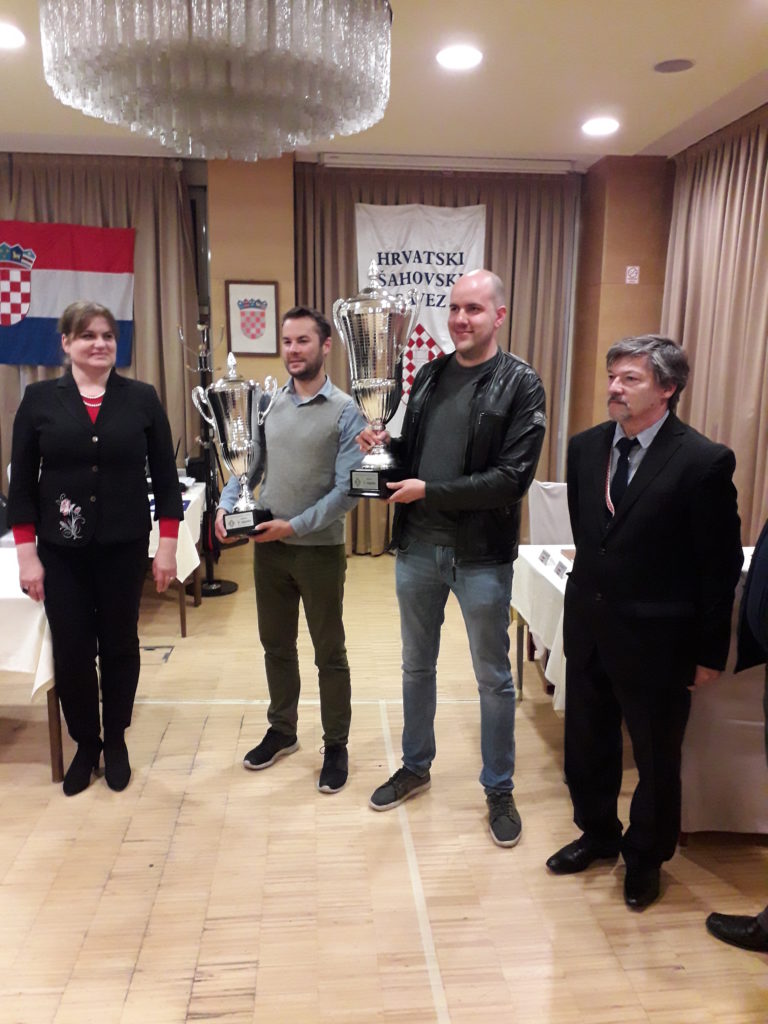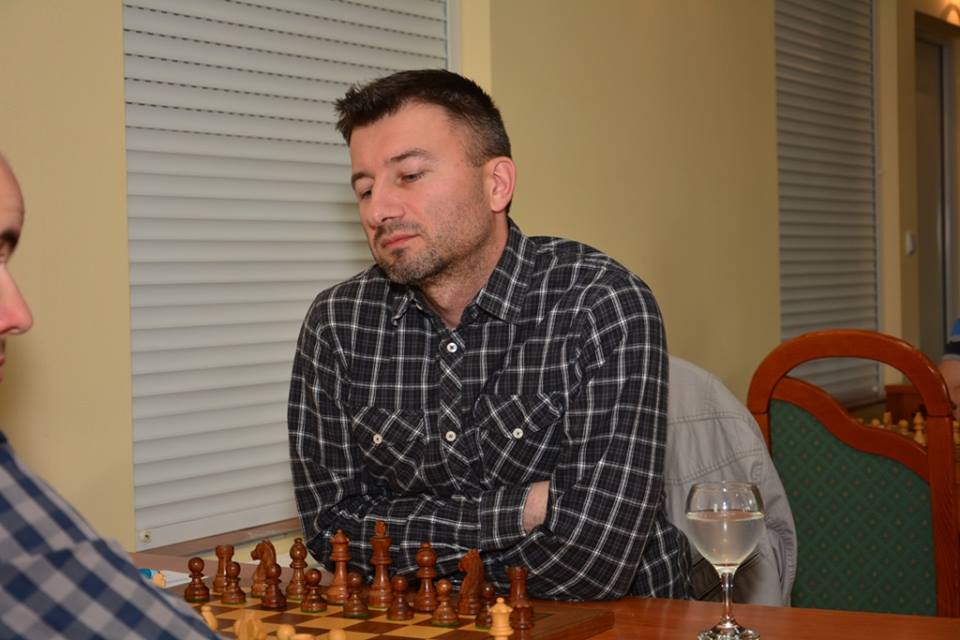Venue and regulations
The annual 50th Croatian Chess Championship was held this year from 31st March to 11th April 2019, in hotel „Central“ located in the city of Bjelovar.
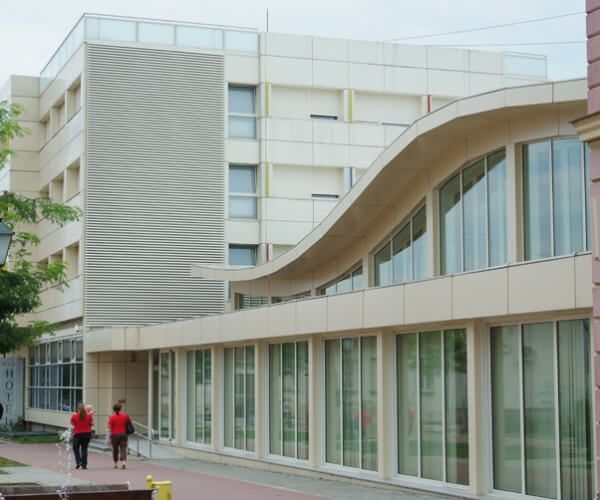
The tournament consisted of 11-rounds and was held in the customary Berger (all-play-all format). The time control was 90 minutes for the first 40 moves, additional 30 minutes on move 41, with the addition of 30 seconds on every move starting from move one.
The players battled for the prize fund of 10 000 EUR, out of which almost one third (2800 EUR) went to the winner, 2200 EUR to the second place winner, 1700 EUR to the bronze medalist, 1300 EUR to the fourth place winner, 1100 EUR for the 5th place winner and 900 EUR to the 6th place winner.
(Source: Official propositions for the Croatian Chess Championship 2019 1)
Participants
According to the Competition Rule Book issued by Croatian Chess Federation 2, the participants qualify for the Croatian Chess Championship on the basis of the following criteria:
-
Four best players from the previous edition of the Championship
- Ivan Šarić – 1st seed and the defending champion, European Champion in 2018
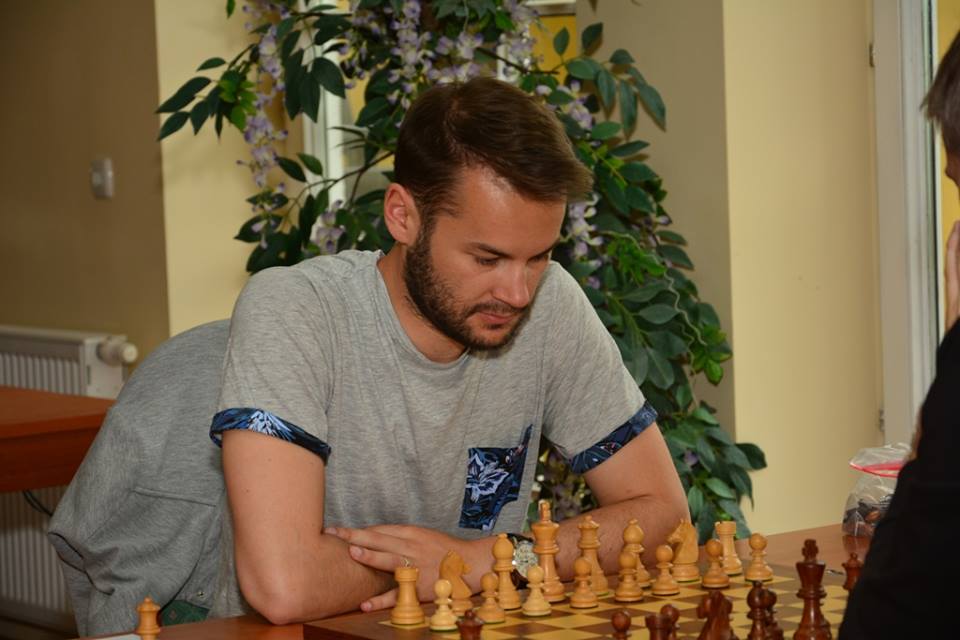
-
- Zoran Jovanović
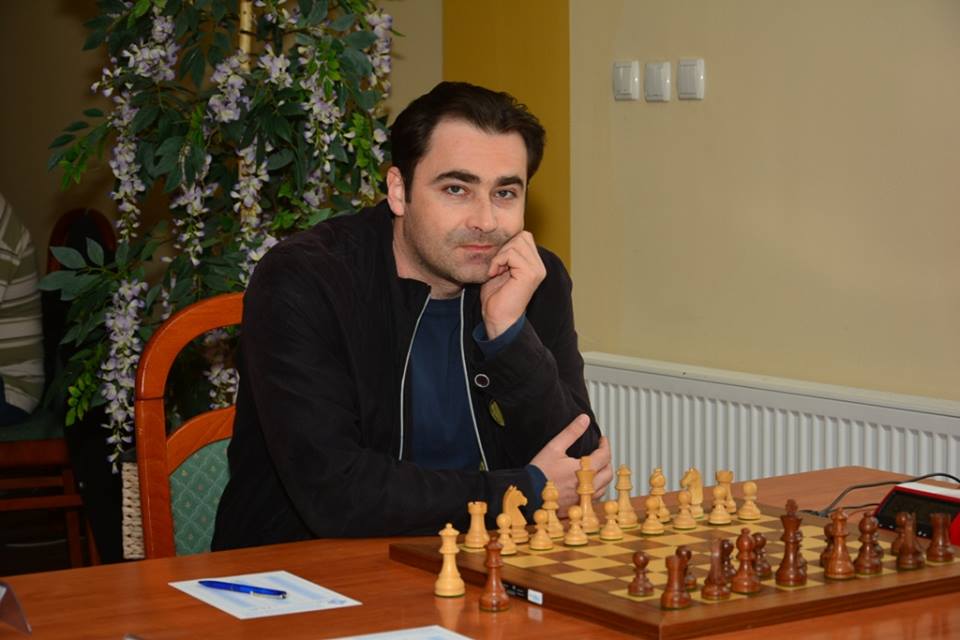
- Hrvoje Stević
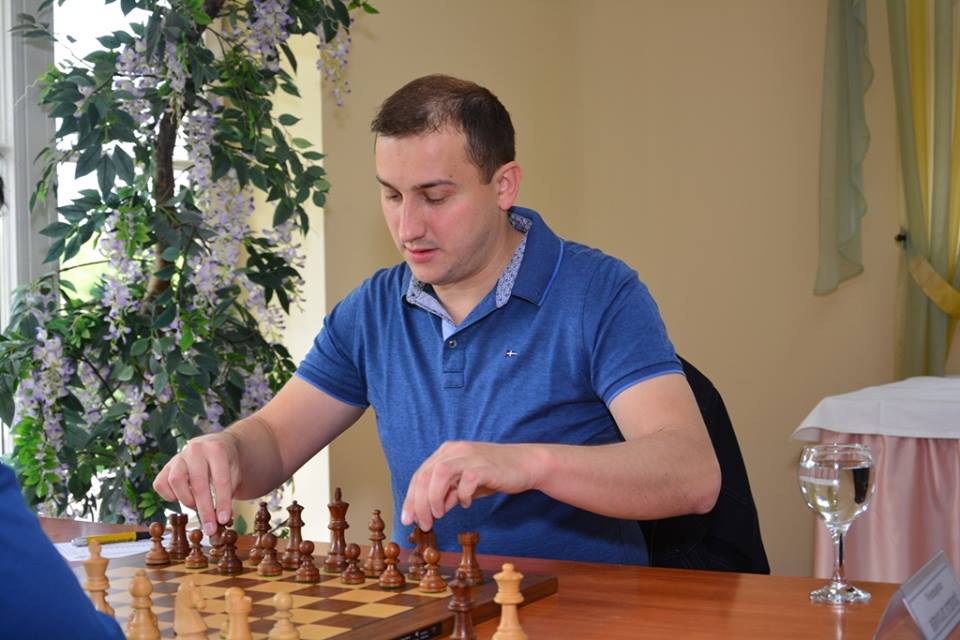
-
- Blažimir Kovačević
-
Four players who qualified via qualifying tournaments
- Ante Šarić – Highest placed Croatian player in the Pula Open 2018 chess tournament
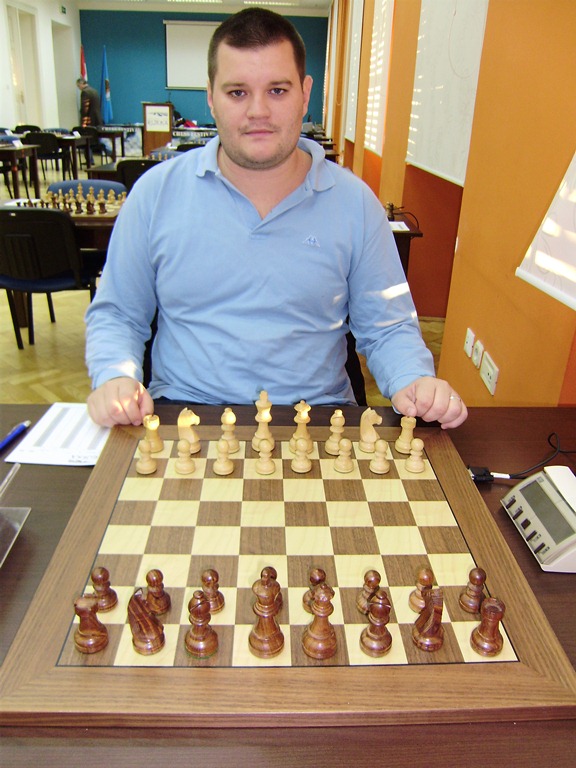
-
- Ante Brkić – Highest placed Croatian player in the Zadar Open 2018 chess tournament
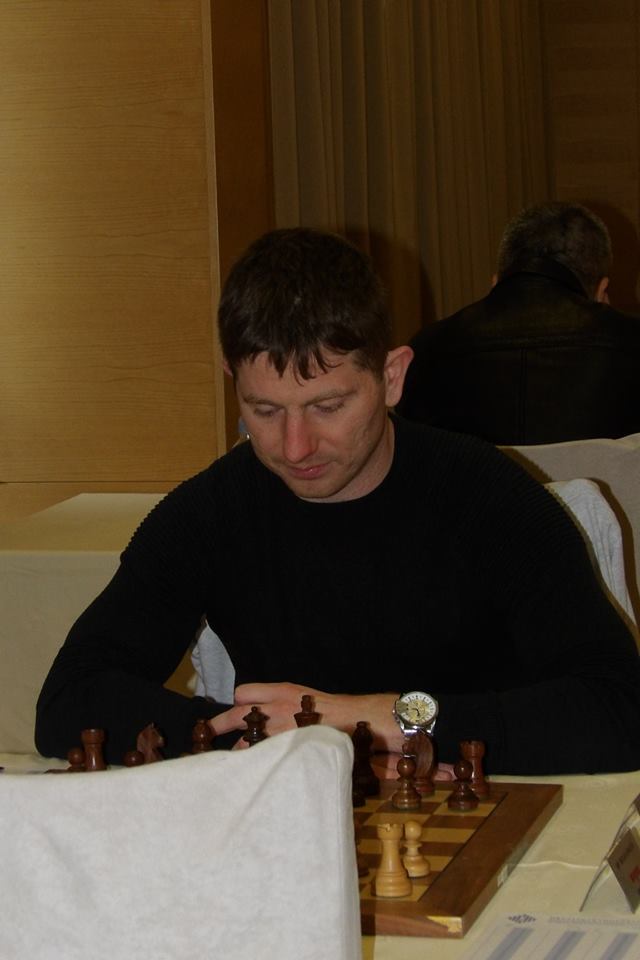
-
- Saša Martinović – Highest placed Croatian player in the Zagreb Open 2018 chess tournament
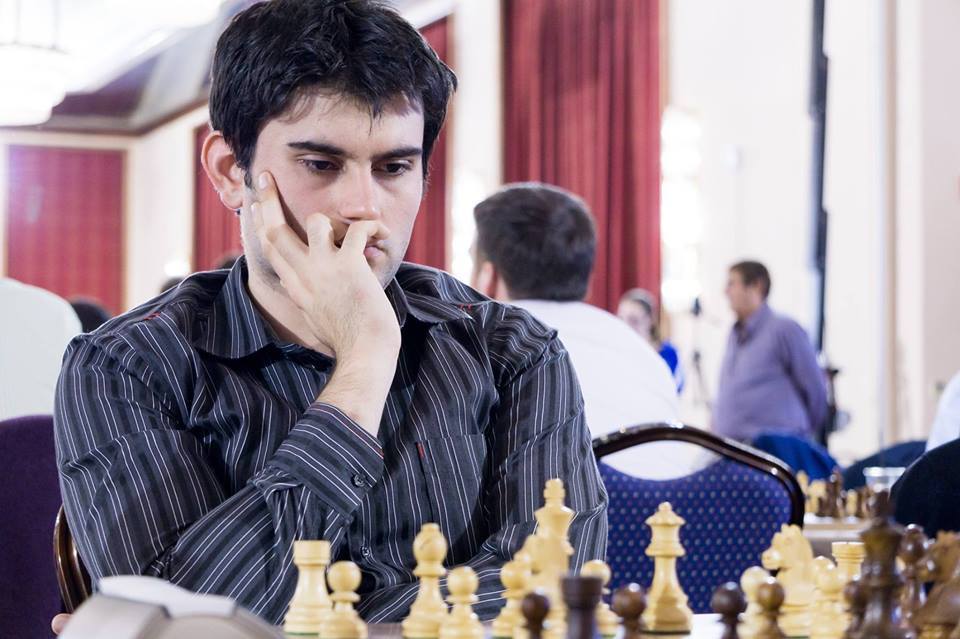
-
- Robert Zelčić – Highest placed Croatian player in the Split Open 2018 chess tournament
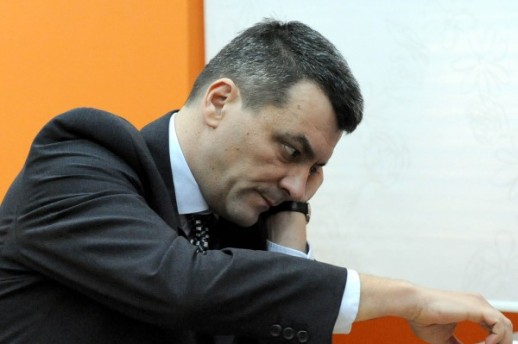
-
Four players with the highest average rating in the period between October and December 2018
- Marin Bosiočić (2596,67 average rating) – Croatian Champion in 2017
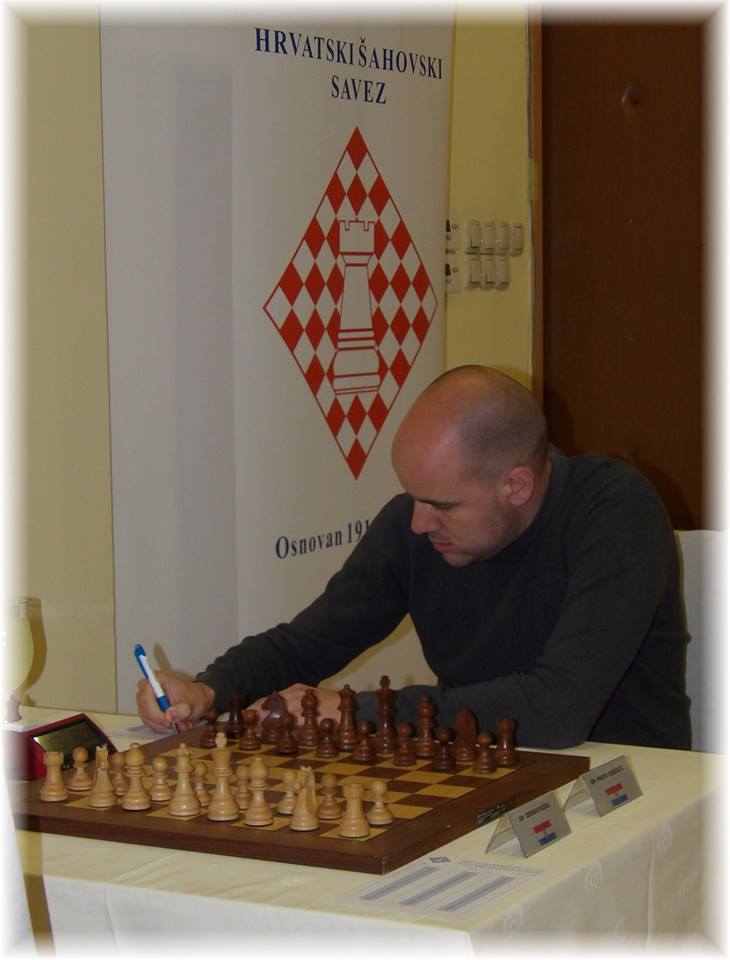
-
- Zdenko Kožul (2608,33 average rating) – Croatian legend, multiple Croatian Champion and 2006 European Champion
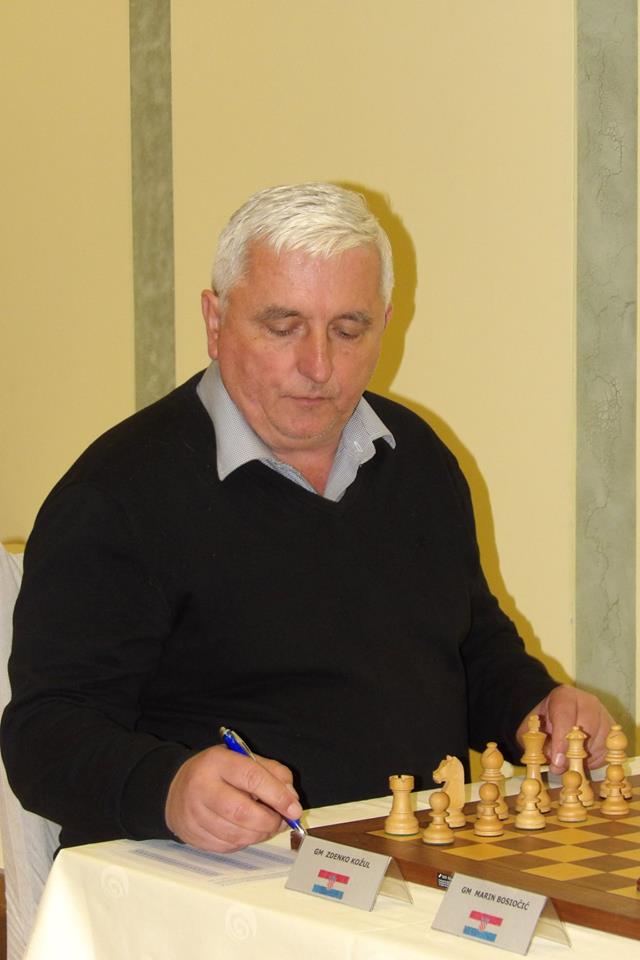
-
- Bojan Kurajica (2529 average rating)
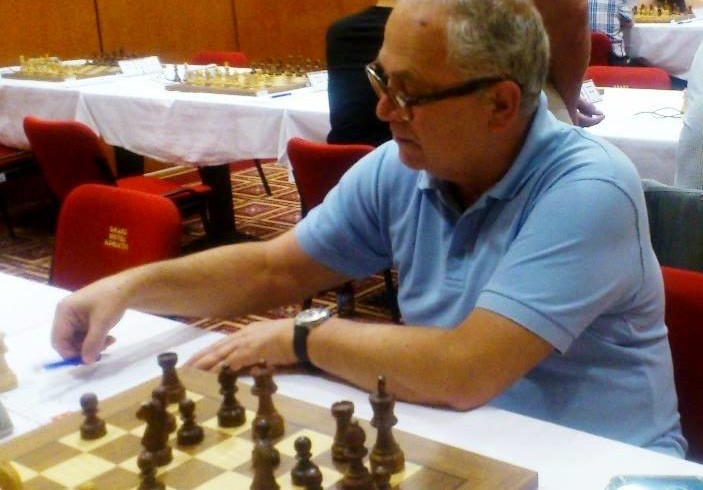
-
- Ognjen Jovanić (2515 average rating)
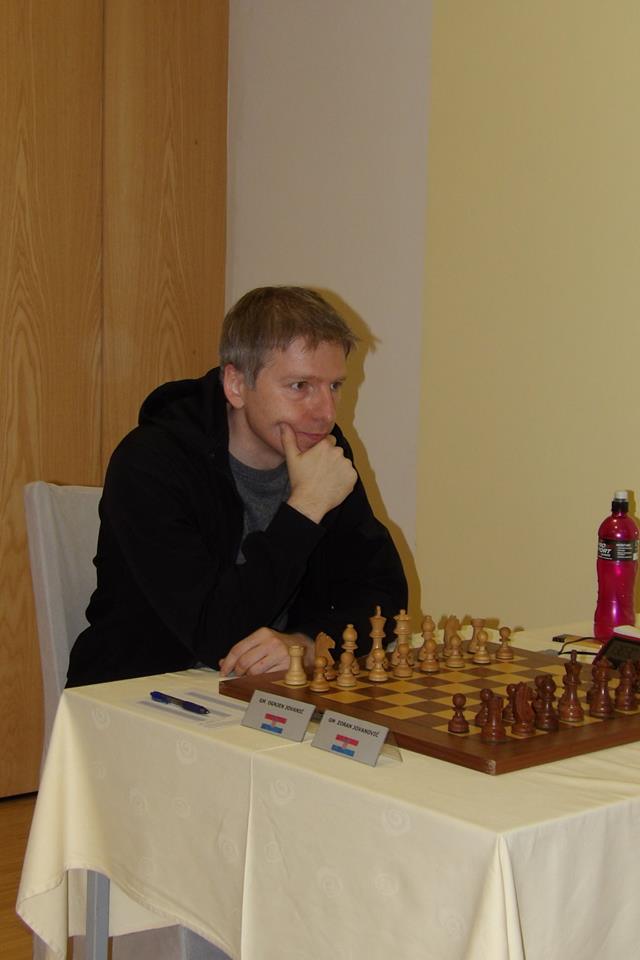
(Photos are taken from the official website of the Croatian Chess Federation and other sources. Photos are not necessarily from this year’s edition of the Championship )
Compared to previous years, strong Croatian Grandmaster Mladen Palac was a notable absentee, even though according to the rating criteria (2550 average rating) he would have had a spot. We don’t know whether he didn’t want to or couldn’t participate, so we prefer not to speculate.
Grandmaster Davorin Kuljašević (2556 average rating) was also not there, but that is not that surprising since he plays less these days and has devoted himself to teaching and content creation.
Another notable name on the list is Bojan Kurajica, a legendary Yugoslav and (later) Bosnian grandmaster, winner of several strong international tournaments, who has a victory against none other but Anatoly Karpov in his resume. Without wishing to belittle his past achievements, the appearance of his name on the list of participants was surprising and not very logical.
First of all, during his entire life, he was a member of the Bosnian Chess Federation. He played for the Bosnian team in the Olympiads and participated in Bosnian National Championship. Even though he had connections to Croatia (he is from Split, after all), he never lived here and preferred to move to Spain instead.
How his transfer to Croatian rating list happened is not known, since the decision was not announced publicly. But we think allowing „any foreign grandmaster“ to register and play in the national championship should be regulated – say, by introducing a rule that every participant must have spent at least 5-years as a member of the Croatian Chess Federation.
But even if we disregard that, we are not certain whether allowing 72-year-old grandmaster well past his prime to compete in such a closed event is in the best interest of Croatian Chess. Wouldn’t it be more natural to give a chance to one of the promising juniors like Leon Livaić, Jadranko Plenča or Sven Tica (whose rating in the upper 2400s heights is not that far away), say by devising one „wild card entry“ to supplement one „average rating“ spot?
These youngsters would probably „kill“ for an opportunity to play in such an event. And I think they could hardly do worse than Kurajica, who finished second-to-last and scored only 3 points out of 11 games.
All the „off-the-board“ matters aside, from the chess viewpoint the tournament was incredibly interesting to follow. There was a number of beautiful games, big blunders and instructive endgame moments.
Apart from the strongest player in the field – Ivan Šarić and Marin Bosiočić – who performed according to the expectations, legendary Zdenko Kožul was also in form, which culminated in a three-way battle. In the end, as has become customary, the fate of the tournament winner was decided only in the last round. And required the use of the tiebreak system.
Full highlights report of the Croatian Chess Championship 2019 follows!
Quick draws
Alas, before we get to all the excitement and action, we have some bad news first. Croatian Chess Championship 3 is traditionally known for a very high number of quick draws.
I have written about this issue in the past. And many people were not pleased with me pointing it out. I am certain I made some enemies. I even heard some of the grandmasters read it.
But I think it is an important topic. Therefore, before I actually show these „games“, I would like to clarify several things.
First of all, by stating I don’t like quick draws, I don’t state I am a stronger player than these guys. Some people have responded along the „Well-why-don’t-you-go-there-and-show-them-how-it-is-done“ lines. Criticizing quick draws is not the same as criticizing players’ abilities. Or their character, for that matter.
Only their willingness to fight.
Secondly, some people have said that 11 rounds are long and that players need to preserve their energy. I agree to an extent. Making one draw in eleven games is not the end of the world. Especially if the tournament situation dictates it. If there is a prize involved.
But making several of them is not commendable. As we will see – some players are prone to doing it more than the others.
Besides, it is worth mentioning world-class grandmasters don’t do it on such a scale in closed tournaments (where they face much tougher opposition).
Finally, the expenses of all participants are covered (not sure about the appearance fee). I think this alone should be an incentive for the players to play normal chess and reduce prearranged draws to a minimum.
Think what would happen in the NBA if the players didn’t play the entire game, but decided they are content with the 20:20 result at the end of the first quarter and went to the nearby bar instead. They would get chastised and the funding would drop ASAP.
With that being said, this year’s edition of the Croatian Championship was not an exception to the rule. Although almost 50% of the games (32/66) ended in a decisive result, there was a number of clashes where the battle ended way before it has even begun.
It started as early as round 1. A 17-move draw between Jovanović and Stević:
A 20-move draw between Stević and Kožul in round 2.
Another beauty from round 2, this time between Brkić and Šarić Ante.
Even the eventual tournament winner was not immune, as he drew in 15 moves against Šarić Ante in round 3.
Kurajica and Jovanović tried going for the record with a 12-move draw in round 4.
But they got thwarted by Stević and Šarić in round 11.
Another one in which Stević was involved. We think it is a real pity he didn’t try to play his best – in the 2017 edition he showed his capabilities when he almost became the Champion.
That’s not all, folks…
Beautiful games
Fortunately, it was not all grim.
As I have mentioned above, this year’s edition of the Championship was particularly bloodthirsty. Among 32 decisive games there were several beauties.
I was particularly impressed with the Ante Brkić’s victory over the eventual winner in round 1:
The next game I liked was Bosiočić’s victory over GM Blažimir Kovačević. Even though Blaž was completely out of form in this tournament, the final combination was rather appealing to me:
As mentioned above, Zdenko Kožul was very much in form. The following game displays all the best characteristics of his style – thirst for the initiative in the opening, strong combinational play and good endgame technique. He did leave his opponent of the hook at some point, but in a practical game it was very hard to defend:
Last but not least, local chess teacher and the biggest chess enthusiast in Croatia Vlado Karagić organized the choice for the most beautiful game of the tournament. According to the jury consisting of strong Croatian players and audience votes, the award went to Saša Martinović for his victory against Zoran Jovanović:
Blunders, Endgames and Missed Opportunities
On the other side of the spectrum, in contrast to the flashy attacks and brilliant games, there was also a number of big blunders and crude oversight in this tournament.
As the previous edition has shown, this is something unavoidable in the tournaments of this caliber. When the stakes are high and the players tired and nervous, mistakes can happen. It is part of being human.
Curiously enough, a lot of the blunders happened in the endgame. Especially in the rook endgame. There were several games in which the stronger side didn’t manage to convert, or the weaker side threw away the draw.
If you are an atrocious endgame player like myself, the fact that even Grandmasters err in the final phase of the game might give you hope and motivation to improve.
- Blunder nr. 1 – Kurajica loses a drawn endgame
- Blunder nr. 2 – Jovanić makes a losing continuation and Zelčič fails to exploit it
- Blunder nr. 3 – Šarić Ante self-destructs in a winning position
- Blunder nr.4 – Kurajica loses another drawn endgame
- Blunder nr. 5 – Brkić fails to spot a study-like defence
- Blunder nr. 6 – Zelčić loses the unthinkable
The Course of the Tournament
The tournament itself was very tense and close from the very start. After three rounds, a group of five players was in the lead:
- Ante Brkić 2.5/3
- Ivan Šarić 2/3
- Robert Zelčić 2/3
- Zdenko Kožul 2/3
- Ante Šarić had 2/3.
At this important moment, Kožul suffered a dire setback in the form of his defeat against Zelčić:
Ante Šarić started making some draws due to which he also fell out of contention for the first place. On the other hand, after his loss against Brkić in the first round mentioned above and a subsequent two draws, Marin Bosiočić picked up the pace and joined the group of leaders.
After five rounds (and his victory against Kovačević also mentioned above), the situation was as follows:
- Brkić 3.5/5
- Ivan Šarić 3.5/5
- Zelčić 3.5/5
- Bosiočić 3/5
- Kožul (who recovered from the defeat with his “lucky” win against Kurajica mentioned in the blunders part of the post) 3/5.
In round 6, the crucial encounter between two Croatian strongest players took place:
As it would later transpire, this game had a decisive impact on the final outcome of the tournament. But we are getting ahead of ourselves.
In the very next round, Ivan recovered from his loss by beating one of the co-leaders, Robert Zelčić (who up to that point had a fantastic tournament):
Alas, due to the unlucky pairing system, in the very next round Zelčić had to play against Bosiočić. This game put an end to his hopes of winning the title once again:
In rounds 6-8 Brkić made three draws and then blundered against Ivan Šarić in a game we mentioned earlier. On the other hand, Kožul got another gift, this time from Ante Šarić (also mentioned earlier). After 9 rounds the situation was as follows:
- Ivan Šarić 6.5/7
- Bosiočić 6/7
- Kožul 6/7
In round 10, Ivan Šarić drew with the Black pieces against Ante Šarić. Kožul was busy beating Jovanović in a beautiful game analyzed earlier, while Bosiočić scored a miracle win against the “old man” Kurajica in a game whose importance can’t be overemphasized:
Thus, before the last round, all three players had 7/10. The situation looked favorable for Ivan Šarić – he had White against Blažimir Kovačević who was in the last place, while Kožul and Bosiočić had to play against each other.
And indeed, Ivan disposed of his opponent with relative ease. But it was not enough. Despite having the black pieces, Marin Bosiočić displayed a true champion character and played probably his best game of the tournament.
A game which Kožul will be happy to forget:
Since he beat Ivan in their mutual encounter, Bos had the better tiebreak. Thus, just like in the 2017 edition, he managed to win his title in the very last round. However, in contrast to that championship, where luck played a crucial role, his victory in the 2019 edition was well-deserved.
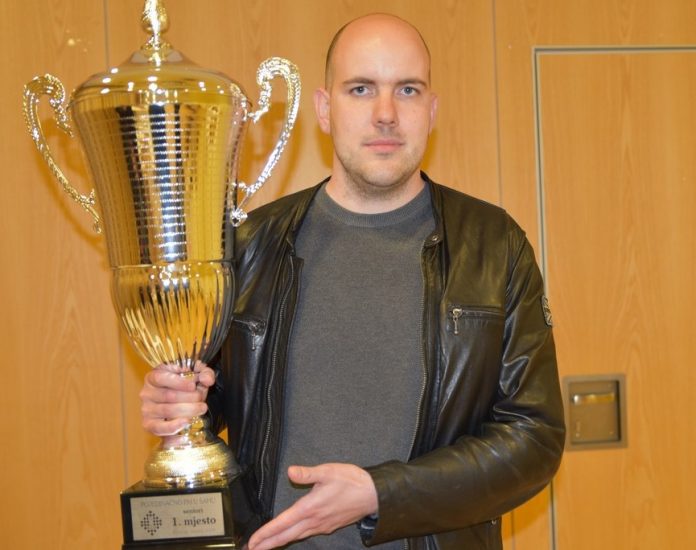
We congratulate to him, but also to the second-placed Ivan Šarić (8/11 is no joke) and Zdenko Kožul, who’s eternal fighting spirit is commendable. Even if it sometimes leads to disasters as in the final game of the tournament.
But you can’t win if you don’t play the game.
If you liked this post, feel free to check our reports from the previous editions of the Croatian Chess Championship:

